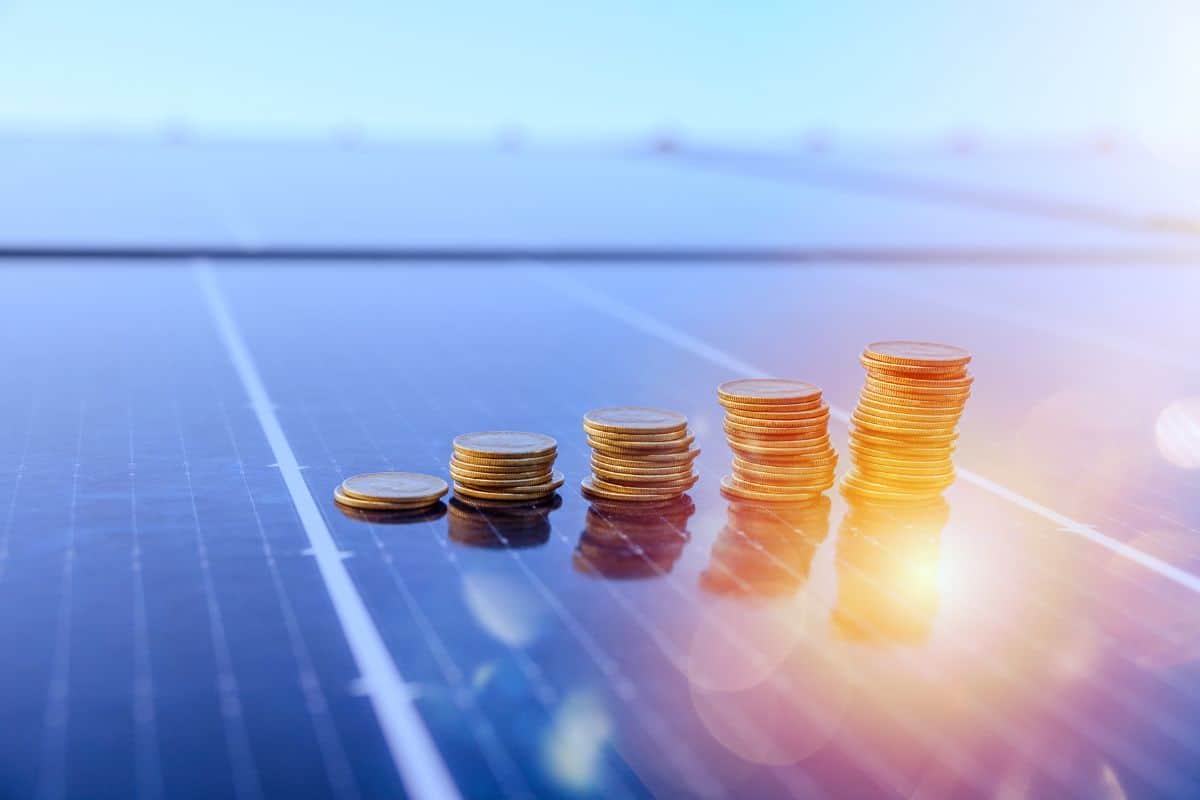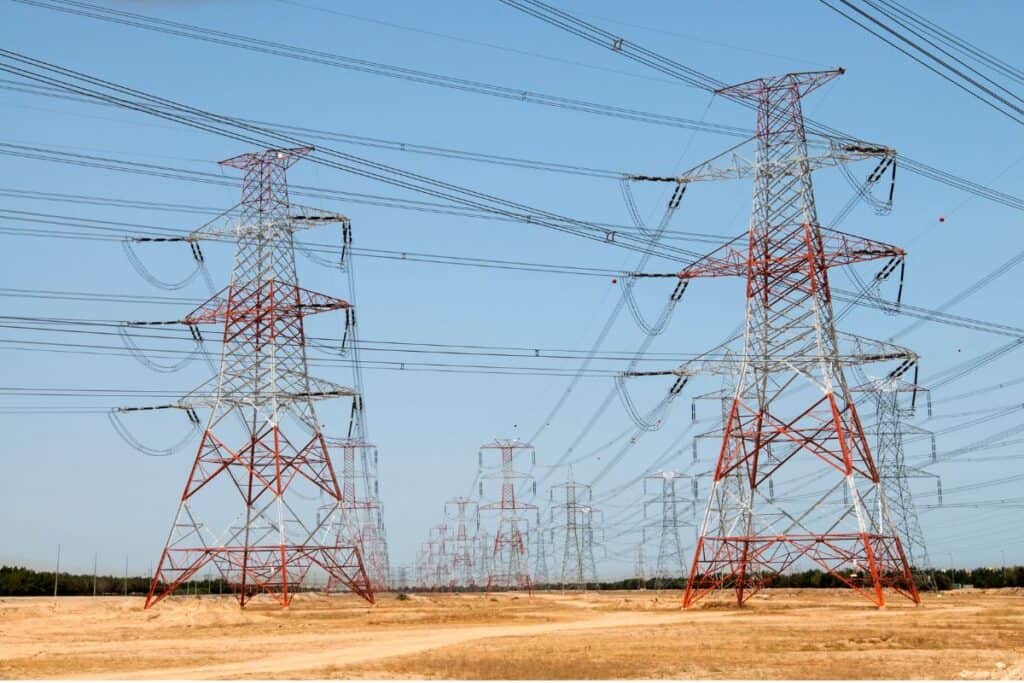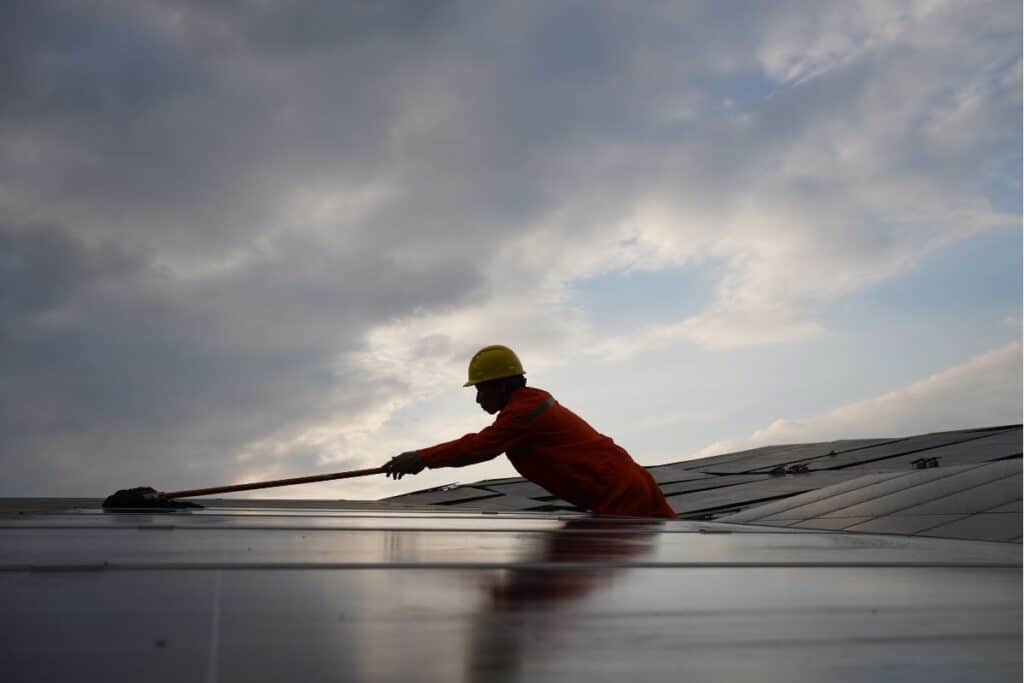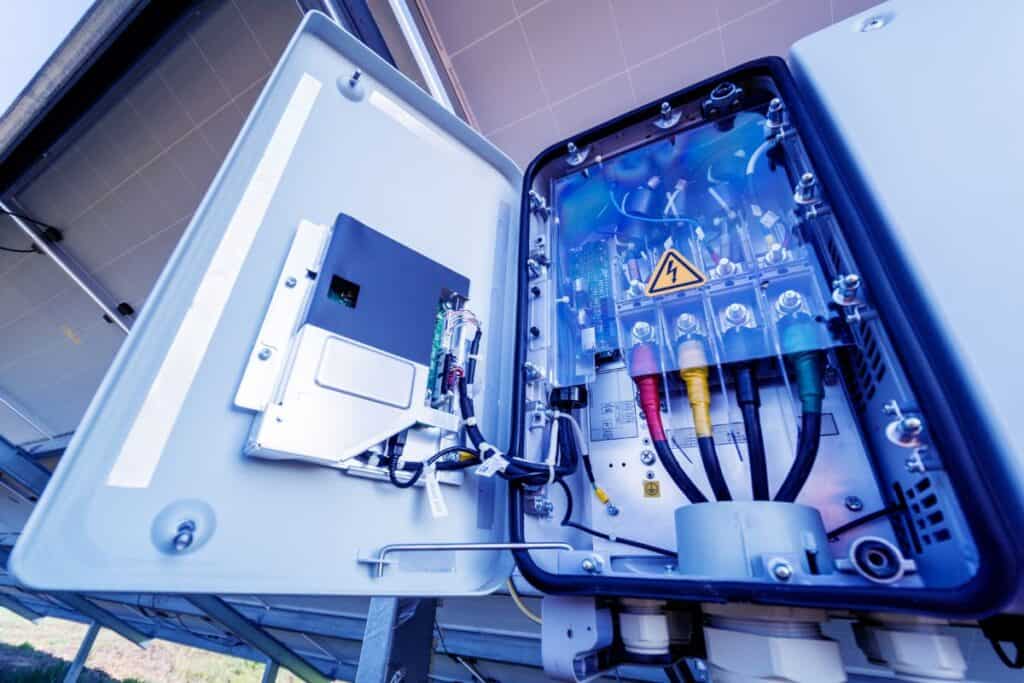So, you’re pondering, “Will solar panels actually save me money?” Good on you for asking this pertinent question, it’s a significant consideration for anyone thinking of going solar.
Yes, solar panels can save you money. However, the exact amount depends on various factors like your location, your electricity consumption, and the size of your solar system.
Let’s now dig into the mechanics of solar savings…
How Can Solar Panels Save You Money
To appreciate how solar panels can save you money, let’s delve into the mechanics of solar energy. Solar panels work by converting sunlight into electricity. This means, with an adequate solar setup, you can significantly cut back on the electricity you draw from the grid, resulting in lower energy bills.

The extent of these savings is contingent on several factors.
Firstly, your geographical location matters – the more sun your location receives, the more power your panels can generate, and the more you’ll save.
Secondly, the size and efficiency of your solar panel system also play a crucial role. A larger, more efficient system will generate more electricity, providing more significant savings.
However, it’s essential to note that bigger isn’t always better. The optimal size for your system depends on your energy consumption. Therefore, it’s vital to tailor your solar installation to your energy needs to maximize savings.
Additionally, you must also consider the cost of electricity in your area. If you’re in a region with high electricity costs, the potential savings from switching to solar are higher.
Finally, various incentives and rebates can further increase your savings. In many regions, governments and utility companies offer incentives for installing solar panels.
These can come in the form of tax credits, rebates, or feed-in tariffs that pay you for the excess electricity your system generates and feeds back into the grid.
Now, let’s address a more specific question: How much money can you actually save by going solar?
Potential Solar Savings: Crunching the Numbers
Estimating potential savings from installing solar panels involves some calculations. For example, let’s say you live in a home that consumes 10,000 kWh of electricity per year. If your current electricity rate is $0.20 per kWh, your annual electricity expense would be $2,000.
If you install a solar system that covers 80% of your electricity consumption, you would save around $1,600 on electricity costs in the first year. Now, if the cost of your solar system is $10,000, and you’re saving $1,600 per year, you’ll recoup your initial investment in just over 6 years.
After that, your savings would continue to accumulate, all while enjoying clean, renewable energy.
This is a simplified example, and actual savings can vary based on factors like panel efficiency, system costs, and utility rates.
It’s also essential to factor in maintenance costs, which are usually minimal but can impact overall savings.
Moreover, while solar panels can provide substantial savings over time, the upfront costs can be significant.
Financing options, including solar loans, leases, and power purchase agreements (PPAs), can help spread out these costs, making solar energy more accessible. I will however dig into this a little later in this article.
While your mileage may vary, solar panels indeed have the potential to save you money. The key is to do your homework, understand the factors at play, and choose a system that’s tailored to your needs.
Solar energy is not only a sustainable choice but also a smart investment that can yield significant financial returns over time.

Solar Power vs Grid Power: Which Is Cheaper?
You’re now probably wondering, “Exactly how much money can I save using solar power compared to traditional grid power?” This is a vital question, and the answer can be illuminating.
When comparing the savings between solar power and grid power, you’ll find that solar power often comes out on top. Although it’s difficult to provide a definitive figure without knowing the specifics of your situation, the potential savings are substantial.
To understand how this works, let’s dive a bit deeper into the factors that influence these savings.
The Real Savings of Solar Power
Electricity costs vary greatly depending on where you live. On average, though, residential electricity prices in the United States hover around 13 cents per kilowatt-hour (kWh).
If your home uses around 900 kWh per month, that’s a monthly bill of about $117 – or $1,404 per year. Now, imagine you could produce most of that power yourself with solar panels.
A typical residential solar panel system in the US can produce around 10,000 to 12,000 kWh of electricity per year. Depending on your consumption, this might cover the majority, if not all, of your electricity needs.
If you’re replacing grid power priced at 13 cents per kWh with solar power, you’re looking at potential savings of around $1,300 to $1,560 per year.
It’s important to note that solar power isn’t entirely free. There are initial setup costs and occasional maintenance expenses.

However, with the falling price of solar installations and the longevity of modern solar panels, the lifetime cost of solar power per kWh often ends up being lower than grid power. Plus, you’re safeguarding against future electricity price hikes.
Keep in mind that solar power isn’t an all-or-nothing proposition. Even if your panels don’t cover 100% of your electricity needs, they can still make a significant dent in your utility bills.
And when the sun is shining, but you’re not using much power, your solar panels can often feed excess electricity back into the grid, earning you credits on your bill or even cash, depending on your utility company’s policies.
The money you can save using solar power vs grid power can be substantial. However, the exact figure will depend on your specific circumstances, including your electricity consumption, your location, the size of your solar setup, and the cost of electricity in your area.
As mentioned earlier in this article, the cost of installing solar panels can be substantial, so that then begs the question, will the money you save using solar be enough to recoup the cost of the solar panel installation?
Solar Panel Installation Costs: Will the Savings Offset the Expense?
Alright, so you’ve understood that solar power can save you money in the long run. But, will these savings actually cover the initial costs of solar panel installation?
Let’s tackle this critical question.
The upfront costs of solar installations can indeed be substantial. Yet, with the continuous savings on electricity bills, these costs can be recovered over time.
The price of a solar panel system depends on the size of the system, the quality of the panels, and the complexity of the installation. A standard residential solar panel system in the US could range from $15,000 to $25,000 before incentives.
Recouping your Solar Investment
But here’s the good news: the solar industry is supported by numerous local, state, and federal incentives that can dramatically reduce upfront costs. The federal solar tax credit, for example, can deduct 26% of the installation costs from your federal taxes as of 2021.
So, let’s say you install a solar panel system that costs $20,000. After the federal tax credit, you might only be out of pocket $14,800. If your solar panels save you $1,500 on electricity bills each year, you could recoup your initial investment in less than 10 years.
After that, the savings are essentially profit.
Of course, every situation is unique. The exact payback period will depend on your installation costs, the incentives you’re eligible for, your energy consumption, and the cost of electricity where you live.
In addition, the longevity of solar panels comes into play. This means you could enjoy free or drastically reduced-cost electricity for decades after you’ve recouped your initial investment.
While the initial cost of solar panel installation can be considerable, the savings on electricity bills can indeed offset this expense over time. Investing in solar panels is a long-term commitment that can deliver substantial returns in the form of lower utility bills, increased property value, and reduced environmental impact.
Are There Hidden Costs Involved With Solar Power?
You’ve already learned about the potential savings solar panels can bring and how these savings can offset installation costs. But what about the less-obvious expenses? Let’s unmask any hidden costs of using solar power.
The concept of hidden costs can be quite elusive, especially when it comes to solar power. These costs aren’t necessarily “hidden,” but they’re often overlooked in the initial cost analysis.
The Often-Overlooked Costs of Solar Power
Firstly, solar panels require a certain level of maintenance. While they’re usually hassle-free, periodic cleaning to remove dust, bird droppings, or snow is necessary for optimal performance. You can do this cleaning yourself, or you might choose to hire a service, which would be an additional cost.
Next, depending on where you live, you might have to pay for a permit to install your solar panels. Additionally, some utility companies charge a minimum monthly fee, regardless of how little grid electricity you use.

An often overlooked cost is that of replacing the inverter. The inverter, which converts the DC power produced by the panels into usable AC power, usually has a shorter lifespan than the panels themselves. On average, you’ll need to replace it after about 10-15 years, at a cost of $1,000 to $2,000.
Finally, if you’re not buying your solar panel system outright, you need to consider the costs of financing. Many people choose to lease their solar panels or purchase them through a loan, both of which include interest charges. This can significantly increase the total cost of your solar panel system over the lifetime of the financing arrangement.
While these costs might make solar energy seem less appealing at first glance, it’s important to weigh them against the substantial benefits. Even when you account for these additional costs, the savings from solar power often still make it a financially sound investment.
As always, every situation is unique, so it’s essential to consider all the costs and benefits when deciding if solar power is right for you.
Does Solar Power Really Save Electricity?
Now, we’ve covered the potential monetary savings, installation costs, and hidden costs associated with solar power. But let’s get to the heart of the matter: does using solar panels genuinely help you save on electricity? Let’s explore this intriguing topic.
Addressing whether solar panels save electricity requires a clear understanding of what it means to “save electricity.”
Illuminating the Truth: Solar Panels and Electricity Conservation
Solar panels work by converting sunlight directly into electricity. This electricity can then be used in your home, reducing the amount you need to draw from the grid. In that sense, yes, you are indeed saving electricity – at least, grid electricity.
However, it’s crucial to clarify that solar panels don’t necessarily reduce your total electricity consumption – rather, they change the source of that electricity.
If you have a high-energy lifestyle with lots of power-hungry appliances, switching to solar won’t automatically decrease your energy use. It will, however, make your energy use greener and potentially cheaper.
A significant aspect of the electricity savings you might see comes from the potential to sell excess power back to the grid.
Many regions have net metering programs where homeowners are paid for the excess electricity their solar panels produce, which is then fed back into the grid.
This can offset your electricity costs and even result in a negative electricity bill.
In the end, the electricity-saving benefits of solar panels depend largely on your energy usage habits and the size of your solar power system.
By pairing solar panels with energy-efficient appliances and practices, you can maximize both your electricity and financial savings.
This eco-friendly lifestyle transition might take some time, but the long-term benefits for both your wallet and the planet make it a worthy endeavor.
